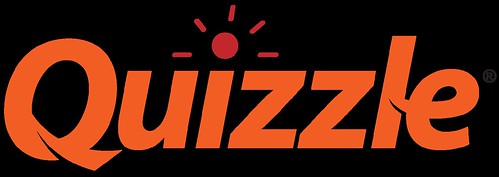Elon Musk, the CEO of electric-car startup Tesla Motors and rocket-launcher SpaceX, should be applauded for the mighty challenges he’s taken on and the powers of persuasion he has deployed to build his companies. But along the way, he discovered that he could stretch the truth, casually and frequently, as a shortcut to getting things done.
Clad in a sheen of bubbly optimism, his mendacity nonetheless has consequences. Through Tesla’s IPO, he has now taken hundreds of millions of dollars from taxpayers and public investors who expect not just a return but square dealing from the man who is managing their company for them.
So where has Musk spun the facts?
Critical reporting
Well, let’s go with the most recent one: He’s lied about me, and VentureBeat, apparently in retaliation for our aggressive and accurate reporting.
In an article published by the Huffington Post, he calls me “Silicon Valley’s Jayson Blair.” He accused me of making errors, but never once specified them. Here’s the truth: I cited Musk’s own words from court filings, which we had paid a freelance reporter to find and copy, legally, from a courthouse in Van Nuys, Calif. I also interviewed a host of other sources. I emailed Musk questions and called his lawyer repeatedly before publishing. We went to extra lengths to nail down the facts: Before publishing, VentureBeat editor-in-chief Matt Marshall called Musk and had interviews with at least three Tesla board members.
We make no apologies for seeking the truth about Tesla Motors and Elon Musk, a vital company and an iconic entrepreneur of Silicon Valley. Our reporting (here’s one example of our series) helped investors get a more truthful picture of a company that was going public and the man behind it.
Musk also accused me of “collaborating” with the lawyer representing Justine Musk, his ex-wife, in their divorce case. Also false: I picked up the phone and called her lawyer, and he had the courtesy to answer my questions.
Now, we should all be used to Musk insulting journalists who don’t report what they’re told to. But calling someone a “Jayson Blair” is a troubling assertion to anyone who prefers his insults to have a factual basis.
When I ran fact-checking at Business 2.0 magazine, here’s what I would have asked the writer to prove before I’d let him get away with that kind of factual assertion: So, you want to compare this Owen Thomas person to one of journalism’s most infamous miscreants. Is Owen Thomas a drug addict? Is Owen Thomas mentally unstable? Has Owen Thomas plagiarized or invented facts? The answer to all of those, in case you were curious, is no.
And so out comes the chief of reporters’ red pen.
The one specific claim Musk made about my reputation was that I had written that he was broke. Not true. If you review the story I reported on his personal finances and their impact on Tesla, you’ll see I merely quoted Musk’s own words from his divorce filing, in which he said that he “ran out of cash.”
When VentureBeat first started raising questions about Musk’s personal finances, his expensive divorce case, and the impact they might have on Tesla’s IPO, a Tesla spokesman initially said that the company had no plans to update its IPO prospectus to reflect our reporting. However, in the end, Tesla updated its SEC filings to acknowledge substantially all of the concerns we raised as potential risk factors investors should consider.
That is the ultimate correction of the record, and it stands today.
Musk’s personal spending
There are other whoppers in Musk’s piece, such as the suggestion that of the $200,000 per month he’s spending, a mere $30,000 a month is going to his own personal household expenses, with the rest going to legal fees in his divorce case. Actually, the figure he told a court is $98,023 a month, according to filings in that case, including $50,000 a month in rent.
The founding of Tesla Motors
An aside to Musk: Making false statements is something the law frowns on.
Oh, but wait, Musk should already know that. He and I met in San Francisco in 2008 for drinks, and over the course of the evening, he made several disparaging remarks about Tesla Motors cofounder Martin Eberhard’s management of the company before Musk had ousted him as CEO — specifically, Musk alleged, for misrepresenting the cost of making the Tesla Roadster. In 2009, Eberhard sued Musk for defamation, citing the comments Musk had made to me, among others. Musk filed a scathing response to the lawsuit, repeating many of his negative claims about Eberhard.
Then it headed to mediation, and the case was settled. Eberhard’s lawyer declared himself “very pleased” with the result, and Tesla issued a press release in which Musk said that Eberhard had been “indispensable” to the company in its early days.
The safety of customers’ deposits
When Tesla’s finances were at their most perilous, in the winter of 2008 and spring of 2009, the company was dependent on advance reservation payments from customers for cash flow. The company’s cash balance had run down to $9 million, and the company was struggling to raise $40 million in convertible debt. (He announced that that round had closed in November 2008, while in fact, according to Tesla’s SEC filings, it did not close until March 2009.) To raise funds in the meantime, Tesla began taking deposits on the Model S sedan, even though that car was far from production, and continued taking deposits on Roadsters. Musk first told customers that he would personally guarantee the deposits they were placing, “even in the worst case of an Armageddon scenario.” Then he said that their deposits were completely at risk and they could lose all their money. One of those statements had to be false.
Musk’s history as an entrepreneur
In persuading other investors to back Tesla Motors, Musk has frequently traded on his past success as an entrepreneur at companies like Zip2 and PayPal. But Zip2 was so troubled that one of its venture capitalists, Derek Proudian, had to step in as acting CEO, a move rarely seen at venture-backed companies. And Musk was ousted as CEO of PayPal by his own management team. To this day, Musk tells a version of PayPal’s history that few who were there at the time agree with.
Tesla’s investors
Most dangerously, Musk has repeatedly made misrepresentations about Tesla’s finances. In February 2009, he sent a letter to customers saying that Tesla would start getting funds from a Department of Energy loan in four to five months. In fact, it had not received the loan at that point and there was no certainty it would get it, a point a Tesla spokeswoman had to clarify. (Tricky, that, saying your CEO had misrepresented the facts without calling him a liar.)
He also said Tesla would turn profitable in 2009. Of course, it didn’t, as the company’s published financials later revealed. (Musk later claimed, using questionable accounting whose details have never been revealed, that the company had been profitable for one month of the year.)
In an interview for the May 2009 issue of Car and Driver, he told that magazine’s readers that General Electric had become an investor. It hadn’t, and it never did, according to Andy Katell, a GE spokesman who spoke with me at the time.
The Toyota deal
After unveiling an agreement to buy the NUMMI plant in Fremont, Calif., from the Toyota-backed joint venture which owned it, Musk claimed that Tesla and Toyota planned to jointly develop several models of cars and build them at NUMMI. It’s true that he got Toyota CEO Akio Toyoda to stand next to him and make grand promises. But in fact, as the company later revealed in its SEC filings, Tesla and Toyota had no agreement to develop any cars, and there was no guarantee that they ever would.
The pity of it all is this: I don’t believe Musk twists the truth out of malice. Rather, at this point, it may well be out of habit. He’s so used to getting his way that future possibilities just seem like present realities to him. And pragmatically, it’s worked. Whenever Tesla has been in a bind, Musk has spun his way out of trouble.
It’s a character trait of which elements are found among many successful entrepreneurs: the compelling presentation of an alternate reality in the hopes that so many people will sign on to the vision that it comes true. Apple CEO Steve Jobs, for example, is so masterful at this that people speak of his reality distortion field. But Musk may have taken distortion to extremes.
The question now is whether Musk’s past habits will serve him well as the CEO of a publicly traded company. Already, it seems the investors who have entrusted Musk with hundreds of millions of dollars are having doubts. With shares of Tesla having already fallen by nearly half since their post-IPO pop, perhaps Musk’s bubble is finally deflating.
But those who are still sticking with the company should ask themselves this: Has Tesla adequately disclosed to investors the risk of its CEO’s curious relationship with the truth?
Next Story: Blizzard Entertainment relents on the use of real names in comments for its game forums Previous Story: Toyota: We’re already building a car to test Tesla’s battery
In 2006, recent Harvard grad Alexa von Tobel was headed for a job at Morgan Stanley. But though she would soon be managing the bank’s investments, she realized she didn’t know the first thing about her own finances. Most financial guides seemed to be written for middle-aged readers with millions in assets, rather than recent college grads. "I was reading every book I could find, but none of them spoke to me," she says. So she came up with the idea for LearnVest, an online personal-finance resource for young women like her, and ended up writing an 80-page business plan.
After two years at Morgan Stanley, von Tobel entered Harvard Business School in 2008. But upon winning a business plan competition held by Astia, a non-profit that supports women entrepreneurs, she took a five-year leave of absence and invested $75,000 of her Wall Street earnings to start LearnVest in November. She quickly enlisted advisors, including Betsy Morgan, the former CEO of the Huffington Post, and Catherine Levene, the former COO of DailyCandy, to help develop the site’s content and technology. In January 2009, she secured $1.1 million in seed funding from executives at Goldman Sachs.
LearnVest’s site launched a year later and has since signed up more than 100,000 members. It offers online budgeting calculators, video chats with certified financial planners on the company’s staff, and free e-mail tutorials on topics such as opening an IRA. The company earns revenue from advertising and by referring its users to companies such as TD Ameritrade. In April, after just four weeks of fundraising, von Tobel closed a $4.5 million investment round led by Accel Partners, which has also invested in Facebook and Etsy. (Incidentally, Facebook CEO Mark Zuckerberg lived in the same dorm as von Tobel at Harvard.)
Von Tobel likens LearnVest to an online version of The Suze Orman Show, but with the goal of reinforcing positive finance habits early on. “Suze Orman helps 45-year-old women get out of debt,” she says. “Why not reach 20-year-olds to keep them from getting into debt?”
penis enlargementWhile chatting up "World War Z" author Max Brooks at the booth for comic publisher Avatar Press, the writer confirmed to MTV News that the adaption of his novel about the zombie apocalypse is not only moving forward, but Brad Pitt is ...
Keith Olbermann suspended his vacation Wednesday night to return to "Countdown" with a Special Comment on the Shirley Sherrod scandal. Olbermann blasted Fox News and right-wing media while at the same time calling upon President Obama ...
about this blog. The FOX411 Blog is your first call for celebrity and entertainment news. FOX411 brings you the latest scoops using FOX's unmatched reach in news, entertainment, TV and the Internet. Click on back now, ya hear? ...

internet marketing courseWhile chatting up "World War Z" author Max Brooks at the booth for comic publisher Avatar Press, the writer confirmed to MTV News that the adaption of his novel about the zombie apocalypse is not only moving forward, but Brad Pitt is ...
Keith Olbermann suspended his vacation Wednesday night to return to "Countdown" with a Special Comment on the Shirley Sherrod scandal. Olbermann blasted Fox News and right-wing media while at the same time calling upon President Obama ...
about this blog. The FOX411 Blog is your first call for celebrity and entertainment news. FOX411 brings you the latest scoops using FOX's unmatched reach in news, entertainment, TV and the Internet. Click on back now, ya hear? ...
big white booty






